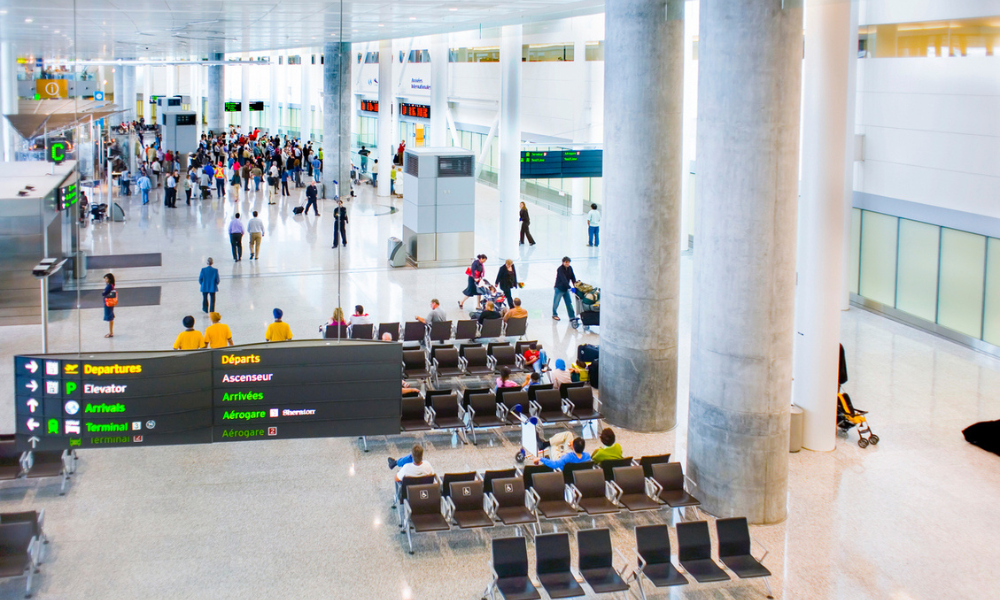
The high court dismissed multiple airlines' challenge to the Canadian transportation regulator's rules

The Supreme Court of Canada ruled in a unanimous decision Friday that federal regulations for compensating airline passengers do not conflict with the Montreal Convention’s consumer protection rules, so airlines must comply with the regulations’ requirement that they reimburse passengers for certain delays, losses, and inconveniences during international air travel.
Writing for the court, Justice Malcolm Rowe noted that in a 2014 decision in a case involving Air Canada, an SCC majority “affirmed that the Montreal Convention is exclusive within the scope of the matters that it addresses, but that the Montreal Convention does not deal comprehensively with all aspects of international carriage by air.
“The same conclusion guides the result in this case,” Rowe wrote.
The International Air Transport Association, Air Transportation Association of America, and multiple airlines, including Air Canada, Porter Airlines Inc., American Airlines, and British Airways PLC, filed the challenge to the Canadian Transportation Agency regulations. The SCC dismissed the challenge.
In a statement Friday, the IATA said it was disappointed by the SCC ruling. “A coalition of various representatives from the aviation industry had brought the proceedings with the aim of upholding the liability provisions of the Montreal Convention on the international carriage of passengers by air, a treaty to which Canada is party,” the statement said.
“Protecting the interests of passengers is best achieved through a safe, efficient journey where disruptions are minimized,” the IATA added. “While airlines play a critical role in this, the federal government needs to focus its efforts on improving the overall air travel system, especially in the parts of the value chain which are directly under its control.”
A representative for the CTA told Canadian Lawyer, “there are no changes to the rights of air passengers or the responsibilities of airlines as a result of this decision.
“The Supreme Court of Canada's decision brings certainty to Canada's passenger protection regime and confirms air carriers' minimum obligations to pay compensation for flight disruptions and lost and damaged baggage,” the representative said.
The airlines’ challenge was aimed at provisions of the CTA’s Air Passenger Protection Regulations, which outlines standardized amounts of compensation airlines must give to passengers for international flight delays, cancellations, and denial of boarding. These provisions apply when disruptions are not occurring for safety purposes and are outside of a carrier’s control.
The regulations also require carriers to refund baggage fees when they lose or damage passengers’ baggage on international flights.
According to the airlines, the CTA regulations conflicted with the Montreal Convention, an international treaty that established rules for airline liability. The convention states that “any action for damages” must adhere to the conditions and liability limits it outlines.
The airlines alleged the convention pre-empted the CTA regulations on compensating passengers, so the CTA did not have the authority to enact those regulations.
The Federal Court of Appeal dismissed the airlines’ allegations, except their challenge to the CTA provisions on the temporary loss of baggage. According to the appellate court, the CTA regulations’ compensation scheme does not count as an “action for damages,” and its provisions on airline cancellations, denials of boarding, and delays are not pre-empted by the Montreal Convention.
The SCC agreed, writing that the “exclusivity principle” or pre-emption component of the Montreal Convention applies to “action for damages.” However, the CTA regulations do not provide for an “action to damages” because the compensation they guarantee to passengers is “not tied to harm suffered by the claimant as a result of injury caused by another.”
An action for damage “shares the characteristics of a judicial proceeding and… seeks individualized compensation that is tied to an injury caused by another. Damages awards are ‘individualized’ in that they seek to compensate the plaintiff for the loss suffered as a result of an injury caused by another,” Rowe said.
In contrast, the type of compensation the CTA regulations provide for “may be owed identically to all claimants irrespective of the harm (if any) they have suffered.”
Rowe went on to say that the CTA regulations operate “in parallel with the Montreal Convention, without trenching on its liability limitation provisions.” Because the regulations do not conflict with the Montreal Convention, there is no reason to conclude that they are ultra vires the CTA either, the decision said.
The Department of Justice Canada, Air Transportation Association of America, and counsel for the airlines did not respond to requests for comment.